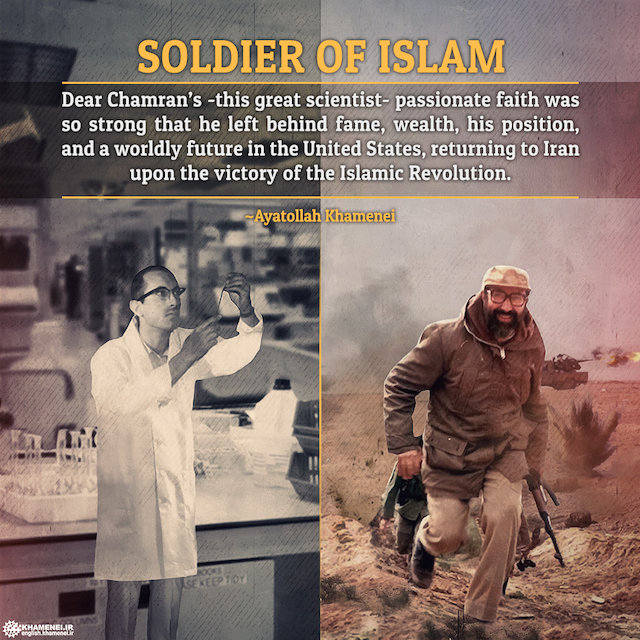
He went to Lebanon to join thejihadalongside Imam Musa Sadr; this was at a time when Lebanon was going through one of the most bitter and dangerous eras of its history. We would hear the news from Lebanon in the year 1979: temporary bulwarks had been built all over the streets of Beirut; the Zionists were provoking the people, and there were a number of people inside Lebanon who would help them. The conditions were tragic and the situation was extremely complicated in Lebanon. It was at that time when I received an audio tape from Mustafa Chamran, while I was in Mashhad. The audio tape was the establishment of my familiarity with Martyr Chamran, it was a two-hour commentary on the scenes he had witnessed in Lebanon. I found the audio very interesting: with clear insight, with a clear political view, with clear political understanding, he had recorded his commentary on the events in Lebanon; what was going on, who was fighting who, who had the motivation to let the killings continue in Beirut. He made a decision to go to Lebanon and fight. Later on, it became clear that he enjoyed lucid political insight and understanding, he was a light in the fog in times of fitna (sedition); fitna is like a dense fog that makes it difficult to see; it is necessary to have light in times of fitna and insight is the fog light. Chamran carried on his fight in Lebanon and later when the Revolution achieved victory, he returned to Iran.
Mustafa Chamran was present in different arenas from the start of the Revolution: he went to Kurdistan where he had an active presence in the conflicts there; later, he went to Tehran, it was here he became the Minister of Defense; and when the war broke out, he gave up his position as the Minister of Defense and went to Ahwaz to fight. Mustafa Chamran continued to fight until he was martyred on June 21, 1981. These events reveal that a position in the government was not of value to him; the material world was not of value to him; the attractions of material life were not of value to him. However, he was not a dry person who could not enjoy life. On the contrary, he was very sensitive and artistic. He was a first-rate photographer, he would tell me, "I have taken thousands of photos and I am not in any of them because I’m always been behind the camera." He had a tender heart for one who had not studied mysticism. Maybe he had not received education from anybody in any divine or mystic schools of thought, but his heart was after God. His heart was tender. He was a spiritual man, a man of praying. He was also an impartial person.
Imam Khamenei, June 23, 2010



 ۹۷/۰۴/۰۳
۹۷/۰۴/۰۳



